A statement from Publishers for Palestine calling for a ceasefire and denouncing repression of Palestinian solidarity.
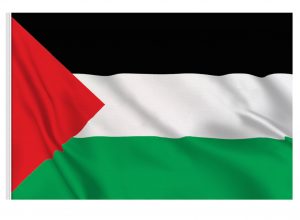 (9 Nov. 2023)
(9 Nov. 2023)
We invite publishers, and those who work in publishing industries around the world, who stand for justice, freedom of expression, and the power of the written word, to sign this letter and join our global solidarity collective, Publishers for Palestine.
We honour the courage, creativity, and resistance of Palestinians, their profound love of their historic lands, and their refusal to be erased, or grow silent, despite Israel’s horrific genocidal acts of violence. Against the chilling complicity of Western media and cultural industries, we find hope sparked by the surge of bodies and voices that continue to gather, write, speak, sing, combat falsehoods, and build community and solidarity across social media and on our streets, across the world.
Over the past month, we have witnessed Israel’s incessant bombardment of Gaza as a form of collective punishment, using banned phosphorous bombs and unusual new weapons, with the support of governments in the U.S., Canada, the U.K., France, Germany, Europe, and Australia. We have watched 1.1 million Palestinians flee their homes in the north, only to experience the brutal destruction of hospitals and spaces of shelter in schools, refugee camps, churches, and mosques in the south of Gaza. We are currently witnessing 2.3 million people, of whom 50% are children, being cruelly denied basic necessities of shelter, food, water, fuel, and electricity as Israel launches a ground invasion. Over 9,000 Palestinians have been killed thus far, along with entire generations of families that fled to Gaza during the Nakba of 1948. And with unbearable grief, we have watched Israel’s horrific killing of over 3,500 children. As Raz Segal, a Jewish scholar of Holocaust and genocide states: “Israel’s genocidal assault on Gaza is quite explicit, open, and unashamed.”
Israel and Western powers are making a concerted attempt to extinguish dissent and maintain their faltering control. Across the publishing and media landscape since October 7th, 2023, the reprisals for speaking out have already been severe and extensive. We decry the killing of dozens of journalists in Gaza, including Mohamed Fayez Abu Matar, Saeed al-Taweel, Mohammed Sobh, Hisham Alnwajha, Mohammad Al-Salhi, Mohammad Jarghoun, Ahmed Shehab, Husam Mubarak, Mohammad Balousha, Issam Bhar, Salam Mema, Assaad Shamlakh, Ibrahim Mohammad Lafi, Khalil Abu Aathra, Sameeh Al-Nady, Abdulhadi Habib, Yousef Maher Dawas, and Roshdi Sarraj.
As cultural workers who pay careful attention to words and language, we note that this genocide was inaugurated with Israeli occupation military leaders using words such as “human animal” to justify their attacks on the civilians of Gaza. It is shocking to observe the use of such dehumanizing language from a people who have themselves experienced the same in the context of genocide. We are also reminded of the language of erasure and genocide embedded in the Zionist (and Christian) mythology of “A land without a people for a people without a land,” enacted by colonial Britain’s Balfour Declaration 106 years ago on November 2, 1917.
These histories of white supremacist, colonial, and capitalist systems of erasure, extraction, and control are reflected in the current moment, even within the rarefied worlds of arts and culture. From the Frankfurt Book Fair/Litprom’s refusal to honour the award given to Palestinian author Adania Shibli (a letter of protest against this was signed by over 1,000 well-known writers), to the cancellation of author readings such Viet Thanh Nguyen at New York’s 92Y, and Mohammed el-Kurd at the University of Vermont, and the recent firing of David Velasco, the editor of Artforum magazine, Western literary and publishing organizations have revealed their deep imbrication in U.S. and Israeli political and economic interests by silencing and punishing writers who speak out for Palestine.
We condemn the complicity of all those working within corporate and independent publishing who enable or condone such repression through their cowardice, silence, and cooperation with the demands of Israeli occupation and imperialist donors, funders, and governments. We condemn the policing and censorship of writers, the bullying and harassment of bookstore owners and staff, and the intimidation of publishing workers who are in solidarity with Palestinians. Publishing, for us, is the exercise of freedom, cultural expression, and resistance. As publishers we are dedicated to creating spaces for creative and critical Palestinian voices and for all who stand in solidarity against imperialism, Zionism, and settler-colonialism. We defend our right to publish, edit, distribute, share, and debate works that call for Palestinian liberation without recrimination. We know that this is our role in the resistance.
The silencing of Palestinian authors and writers only reinforces a fear of Palestinian literary resistance and contributes to the genocide of Palestinians and land theft. The same fear that is behind the bombs, the demolitions, the abductions, and the torture of Palestinian prisoners, is the fear that holds the Palestinian archives in Israeli control. As the writer Ghassan Kanafani said, “the Palestinian cause is not a cause for Palestinians only, but a cause for every revolutionary.” He reminds us that none of us are free until all of us are free.
Now is the time to stand with Palestinians and step into a new era of anti-colonial resistance– an era that refuses the Oslo concessions and the normalization of ties with the Zionist state. Now is the time to remember and uphold other historical victories against settler-colonial regimes, such as the resistance that rid Algeria of its French colonizers. Now is the time to intensify our support for Palestinian liberation from Israel and its U.S. and European backers. Now is the time to build solidarity amongst us to collectively refuse intimidation, repression, fear, and violence.
We call on our comrades, friends, and colleagues across various publishing industries to sign this letter and support the following demands:
- Stop the genocide and bring an end to all violence against Palestinian people in Gaza, the West Bank, across historic Palestine, and in the diaspora.
- Hold Israel and its allies accountable for the war crimes they have committed.
- Assert the demands of Palestinian people to freedom, resistance, and return.
- Uphold the call for boycott, divestment, and sanctions (BDS) against Israeli apartheid.
- Assure that Palestinian voices should not be silenced from future international book fairs and literary festivals across the world. Instead, they should be invited as guests of honour to share their stories.
- Commit to making the publishing industry a genuine site of learning and freedom of speech. As publishers we are dedicated to creating spaces for Palestinian voices and those who stand in solidarity against the war machine.
(If you work in the publishing industry and would like to add your name to this statement, please fill out this form.)
First published on the Verso Books website.
Signed:
AK Press, US & UK
Apostroph, Catalunya, Spain
ArabLit Quarterly and ArabLit Books, Morocco
ARP Books, Canada
Arsenal Pulp Press, Canada
Baraka Books, Québec, Canada
Between the Lines, Canada
Beyond the Pale Books, Ireland
Charles H. Kerr Publishing, US
Common Notions Press, US
Daraja Press, Canada
Écosociété, Québec, Canada & France
Editions du remue-menage, Québec, Canada
En Toutes Lettres, Morocco
Essay Press, US
Fernwood Publishing, Canada
Hajar Press, UK
Haymarket Books, US & UK
Interlink Publishing, US
Interventions, Australia
Invisible Publishing, Canada
Left Book Club, UK
LeftWord Books, India
Lux Éditeur, Québec & France
Manifest Llibres, Catalunya, Spain
Marjin Kiri, Indonesia
Mémoire d’encrier, Québec, Canada
Microcosm Publishing, US
OR Books, US
Pasado y Presente, Catalunya, Spain
Pluto Press, UK & US
Pluto Journals, Ltd., UK
PM Press, US & UK
Radical Books Collective, US
Roam Agency, US
Saqi Books, UK
Setu Prakashani, India
Stree Samya, India
Tilted Axis, UK
trace press, Canada
Tulika Books, India
Upping the Anti, Canada
Verso Books, US and UK
Verso Libros, Catalunya, Spain
Women Unlimited, India
Essay Press, US
Microcosm Publishing, US
Ketebe Publishing, Turkey
Out-Spoken Press, UK
dpr-barcelona, Catalunya, Spain
Seven Stories Press, US
The Hobbyhorse, US
AK Press, US & UK
Zand Press, Nairobi
Canadian Dimension, Canada
Shed publishing, France
Monthly Review, US
Communis Press, US
Tajfuny, Poland
Small Beer Press, US
Uitgeverij EPO, Belgium
Sin Permiso, Spain
CounterPunch, US
Sambasivan & Parikh, US
Pinhole Poetry, Canada
Assembly Press, Canada
Penerbit Anagram, Indonesia
Tanah Air Beta, Indonesia
POST Press, Indonesia
Bamboe Roentjing, Indonesia
Intensif Books, Indonesia
Basanti Press, India
Labirin Buku, Indonesia
Pustaka Bahamut, Indonesia
Svara, Malaysia
Puan Catra, Indonesia
Buku Fixi, Malaysia
Rotasi Books, Indonesia
Penerbit Buruan & Co., Indonesia
Yayasan Bentala, Indonesia
Penerbit Terang, Indonesia
Enggang Media Publisher, Indonesia
Ilhambookstore, Indonesia
Renard Press, UK
Entypois Publications , Greece
Zuka Books, Pakistan
Dalam dekapan cinta dan pembebasan, Indonesia
Fernwood Press, US
Three Essays Collective, India
Mascara Publishing, Australia
Cipher Press, UK
Antinomi, Indonesia
Mkuki na Nyota Publishers, Tanzania
Peninsula Press, UK
Edisi Mori, Indonesia
Editora Terra sem Amos, Brazil
Taipa Editorial, Brazil
Surrey Muse Arts Society, Canada
Grieveland, US
Bookmarks , UK
Anarasa, Indonesia
Vita Books, Kenya
BULANDU Publisher, Indonesia
Open Protest Network, UK
Arc Poetry Magazine, Canada
Sigikata, Indonesia
Penerbit Cerita Kata, Indonesia
Black Goddexx press, US
Pro You media , Indonesia
404 Ink, UK
Panitia Jumaahan, Indonesia
ContraEscritura, Spain
Rachna Books & Publications, India
Založba /*cf., Slovenia
Kedai Hitam Putih, Malaysia
Litani Literasi, Indonesia
The 87 Press, UK
IS Editora, Brazil
Cassava Republic Press, Nigeria & UK
Editora Faísca , Brazil
HOMEF books, Nigeria
Fahamu Africa, Senegal
Katarsis, Indonesia
Perpustakaan Online Genosida 1965-1966, Indonesia
Penerbit Partikular, Indonesia
Blaft Publications, India
Dahlia Books, UK
Pustakapedia, Indonesia
Turos Pustaka, Indonesia
Footnote Press, Indonesia
Divan Kitap, Turkey
Babil Kitap, Turkey
BPPM Balairung UGM, Indonesia
OWN IT!, UK
Les Pages Noires, Canada
Carnation Zine, Canada
Spectre Journal, US
Saffron Press, Canada
Penerbit Pelangi Sastra, Indonesia
Penerbit Shofia, Indonesia
Gantala Press, Philippines
Litwin Books, US
El Viejo Topo, Spain
Edicions del 1979, Catalunya
Icaria Editorial, Spain
Menino Morreu, Coruña, Galiza
Anti-Racism Daily, US
Skein Press, Ireland
Wasafiri Magazine, UK
Cyhoeddiadau’r Stamp, Wales
Editorial Imperdible, Spain
Edicions de la Ela Geminada, Spain
Librarie Saint-Henri Books , Canada
Kube Publishing, UK
Kimpa Vita Press & Publishers, Norway
Perspectives on Anarchist Theory, US
Diari Foll, Spain
Bentang Pustaka, Indonesia
Foundling Productions, UK
RDT_28 INSTITUTE, Indonesia
Midnight Sun Magazine, Canada
Book Works, UK
Brook , France
Editorial Traficantes de Sueños, Spain
Éditions Burn~Août, France
Capitán Swing Libros, Spain
Renebook, Indonesia
Éditions Hourra, France
On ne compte pas pour du beurre, France
Fomite Press, US
Post Fire Books, France
éditions trouble, France
Metonymy Press, Canada
Templando el acero, Spain
House House Press, Canada
Hors d’atteinte, France
Hungry Zine, Canada
Wendy’s Subway, US
Eyelevel Artist-Run Centre and Bookstore , Canada
Éditions Triptyque, Québec, Canada
Bell Press, Canada Hyphen, India
Radiant Press, Canada
Sinar Djaman, Indonesia
Noelia Gonzalez Barrancos, Andalusia, Spain
Magazine Ictus, France
Orciny Press, Spain
Knight Errant Press, Scotland
Les Editions Jimsaan, Sénégal
Peninsula Press, UK
Tumbalacasa Ediciones, Mexico
Barddas, Wales/Cymru
Makina Books , UK
Silver Press, UK
Ignota Books, UK
La Garúa Poesía, Spain
Metatron Press, Canada

 Francesco Filippi is a historian of mentalities and an educator who has specialized in the relationship between memory and the present. He is co-founder of Deina, an association that organises trips of memory and training courses all over Italy. Filippi is the author of five books including the Italian bestseller Mussolini Also Did A Lot of Good (Baraka Books 2021). He lives in Trento, Italy.
Francesco Filippi is a historian of mentalities and an educator who has specialized in the relationship between memory and the present. He is co-founder of Deina, an association that organises trips of memory and training courses all over Italy. Filippi is the author of five books including the Italian bestseller Mussolini Also Did A Lot of Good (Baraka Books 2021). He lives in Trento, Italy.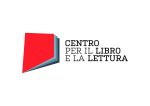 This work has been translated with the contribution of the Centre for Books and Reading of the Italian Ministry of Culture.
This work has been translated with the contribution of the Centre for Books and Reading of the Italian Ministry of Culture. (9 Nov. 2023)
(9 Nov. 2023)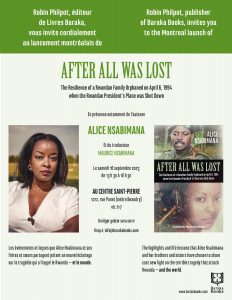 (Montréal, 7 septembre, 2023) – Baraka Books will launch
(Montréal, 7 septembre, 2023) – Baraka Books will launch 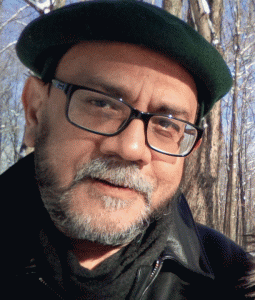 (11 May 2023) Rana Bose left his family and friends yesterday after a long and courageous struggle with cancer. This review of the last book he wrote and presented to the world while already ill was written by Maya Khankhoje, who has given us permission to publish it.*
(11 May 2023) Rana Bose left his family and friends yesterday after a long and courageous struggle with cancer. This review of the last book he wrote and presented to the world while already ill was written by Maya Khankhoje, who has given us permission to publish it.*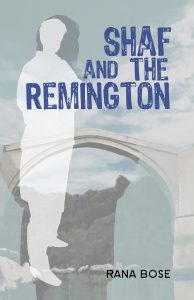
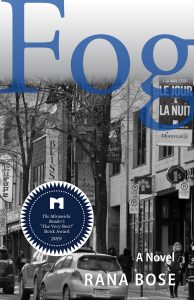
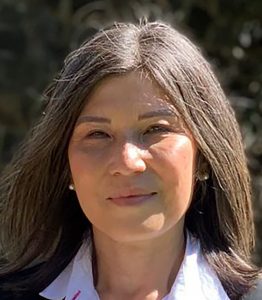 Keep My Memory Safe, Fook Soo Am, The Pagoda
Keep My Memory Safe, Fook Soo Am, The Pagoda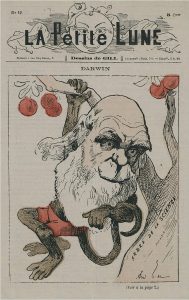
 Luke Francis Beirne was born in Ireland and grew up in Western Canada. His first novel
Luke Francis Beirne was born in Ireland and grew up in Western Canada. His first novel 

Facebook